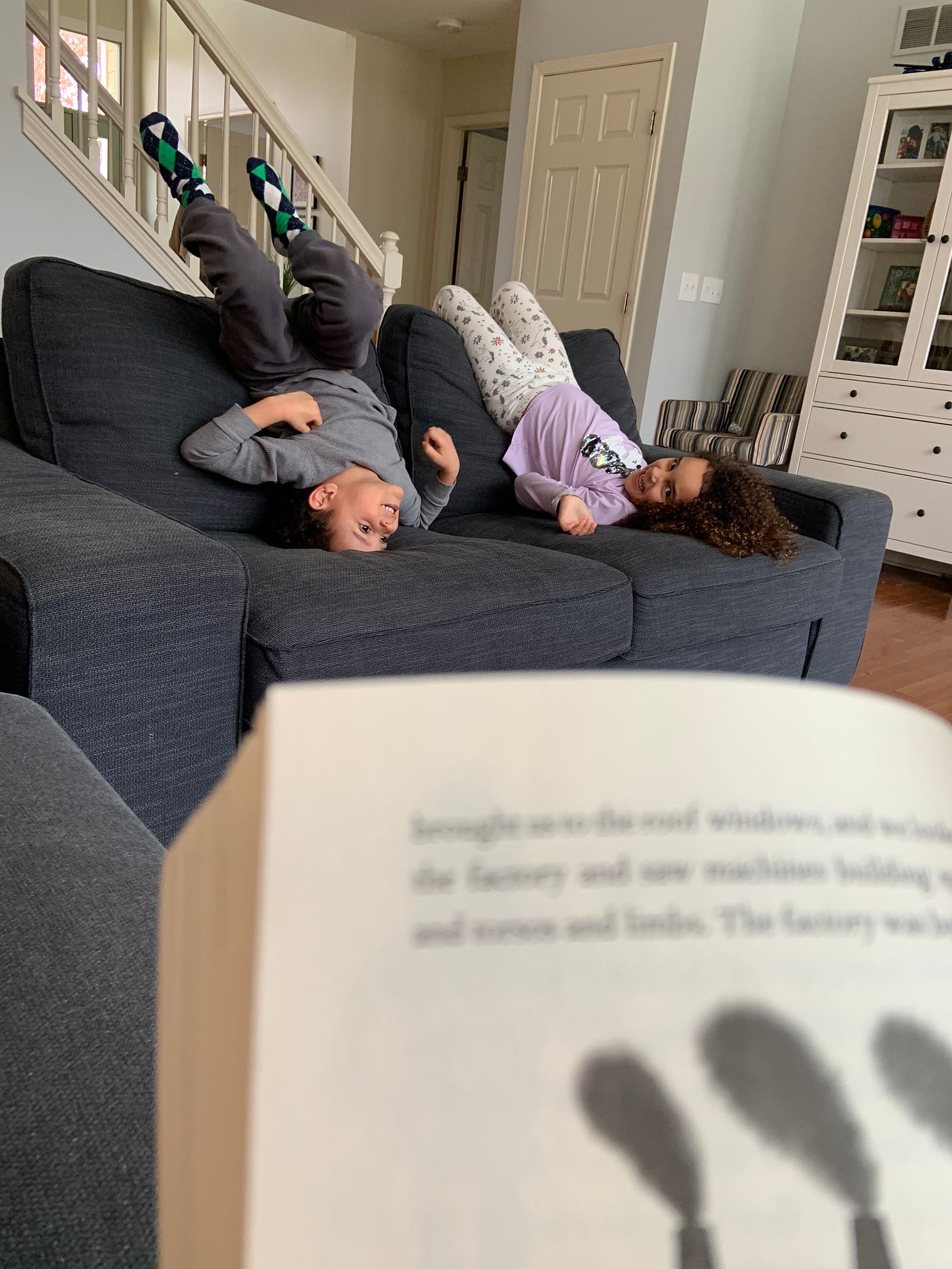The other day on Twitter, a (very) schoolish person wrote that her daughter had finally learned to read and that she was glad to finally be able to see just how intelligent she really was.
The tweet stated:
“And now that she can freaking READ it turns out that she’s actually a pretty bright kid!!”
I needed to catch my breath.
I was so angry. For her daughter. For the millions of young people out there whose intelligence goes unnoticed by others because they aren’t completing arbitrary schoolish milestones on an arbitrary school schedule. For those young people who are put into remedial groups or classes because they are unable to read by a certain age. Studies have shown that these young people have difficulty recovering from these labels and are seen as less intelligent than their peers for the rest of their schooling life purely because they aren’t able to do something that they may not be biologically ready to do when school says they must. School rushes the reading process because reading is one of the only ways to learn at school and a big part of how students are assessed. At school, “how much” a student is “learning” (according to the schoolish definition of learning) can only be seen through reading and written work.
I think about our Z. She is 6 ½ and is not yet reading independently. I mean, she’ll read the stray word or sentence but she doesn’t have the interest right now. Let me say that again: she doesn’t have the interest right now. At this moment in time, reading independently isn’t a necessity in her daily life. And here’s the thing: it’s not getting in her way. At all. She leads an amazingly full six-and-a-half-year-old life without reading independently. She plays all day long - fiercely. Her play is full of excellent storytelling, rich character development, empathy, and humor. She watches shows, listens to podcasts, and devours YouTube videos. Her ability to absorb new information isn’t hampered just because she can’t decode. I find it extremely telling that, when a six-year-old lives a life free of schoolish mandates and benchmarks, it is wholly possible that reading independently is not necessary.
Z is one of my favorite people to read aloud to. Together we’ve enjoyed novels such as The Tale of Despereaux, The Wild Robot (and its sequel), and the entire Ramona series. We linger in books together, savoring characters and storylines. Z remembers details from books long after we’ve completed them and will routinely refer back to specific moments or characters when making a connection to another book or her life. We’ve had deep, thoughtful conversations about themes that emerge from something we have read together.
I routinely listen to a wonderful episode of the podcast, Living Joyfully, where Pam Laricchia and Anne Ohman discuss the “un-reading brain” and that time when young people are using strategies other than decoding in order to make sense of the world. The way un-readers are able to envision, the way they memorize images and facts - they use clues that those who read independently might not be able to fathom. Everything changes once you learn to read; you rely on the written word to decipher the majority of what is happening in the world. When you are not yet reading, you build a toolbox of other kinds of clues and skills to help you do what you need to do. I see this every day with my young people.
I want to be clear: I do not base my beliefs about Z’s intelligence on her ability to decode words in a book. I have always believed Z to be much more than a “pretty bright kid” - I think she’s brilliant (I know, I know, I’m her mom, but still…). She does not feel one ounce of lack about what she is not able to do. She does not see reading as the top of the hierarchy, as is the norm for our society. Z views reading with the same importance as riding a bike, figuring out how to make a smoothie, or constructing bathing suits for her dolls: when she needs to do it, she figures out a way.
When she decides to read on her own, which she will - because, well, life - she will have an abundance of other skills that she’s had the time and space to sharpen while her brain pieced together the puzzle that is reading. She knows she has been a reader all of her life (because, yes, everyone who picks up/listens to text is a reader). She will read because she needs to and wants to, not because she has been coerced. She will know that information and stories can be consumed in a variety of ways, and that one way is not superior to another. She will not have any doubt of her intelligence and she won’t be focused on what she wasn’t able to do at certain times in her life. Mostly she will have the advantage of having people around her who already know that she is a curious, creative, thoughtful human being. We weren’t waiting until she reached some arbitrary, schoolish milestone to finally discover her intelligence. We’ve spent time getting to know her - talking, listening, observing.
We know what it is in her mind and heart -- and it’s pretty freaking brilliant.



All the things!
You wouldn’t even know that some people would “expect” her to be “reading” in a certain way or even that she does not do things that way, if you know the child. It’s just not a thing.